Medical Gases
Medical Equipment
Integrated Medical Gas Systems
Oxygen
Nitrous Oxide
Carbon Dioxide
Helium
Air
Hospitals
Clinics
Home Healthcare
Emergency Services
Cylinders
Pipeline Systems
Manifolds
Regulators
North America
Europe
South America
Asia Pacific
Middle East and Africa
North America Outlook (USD Billion, 2019-2035)
North America Medical Gases and Equipment Market by Type
Medical Gases
Medical Equipment
Integrated Medical Gas Systems
North America Medical Gases and Equipment Market by Medical Gas Type
Oxygen
Nitrous Oxide
Carbon Dioxide
Helium
Air
North America Medical Gases and Equipment Market by End Use Type
Hospitals
Clinics
Home Healthcare
Emergency Services
North America Medical Gases and Equipment Market by Equipment Type
Cylinders
Pipeline Systems
Manifolds
Regulators
North America Medical Gases and Equipment Market by Regional Type
US
Canada
US Outlook (USD Billion, 2019-2035)
US Medical Gases and Equipment Market by Type
Medical Gases
Medical Equipment
Integrated Medical Gas Systems
US Medical Gases and Equipment Market by Medical Gas Type
Oxygen
Nitrous Oxide
Carbon Dioxide
Helium
Air
US Medical Gases and Equipment Market by End Use Type
Hospitals
Clinics
Home Healthcare
Emergency Services
US Medical Gases and Equipment Market by Equipment Type
Cylinders
Pipeline Systems
Manifolds
Regulators
CANADA Outlook (USD Billion, 2019-2035)
CANADA Medical Gases and Equipment Market by Type
Medical Gases
Medical Equipment
Integrated Medical Gas Systems
CANADA Medical Gases and Equipment Market by Medical Gas Type
Oxygen
Nitrous Oxide
Carbon Dioxide
Helium
Air
CANADA Medical Gases and Equipment Market by End Use Type
Hospitals
Clinics
Home Healthcare
Emergency Services
CANADA Medical Gases and Equipment Market by Equipment Type
Cylinders
Pipeline Systems
Manifolds
Regulators
Europe Outlook (USD Billion, 2019-2035)
Europe Medical Gases and Equipment Market by Type
Medical Gases
Medical Equipment
Integrated Medical Gas Systems
Europe Medical Gases and Equipment Market by Medical Gas Type
Oxygen
Nitrous Oxide
Carbon Dioxide
Helium
Air
Europe Medical Gases and Equipment Market by End Use Type
Hospitals
Clinics
Home Healthcare
Emergency Services
Europe Medical Gases and Equipment Market by Equipment Type
Cylinders
Pipeline Systems
Manifolds
Regulators
Europe Medical Gases and Equipment Market by Regional Type
Germany
UK
France
Russia
Italy
Spain
Rest of Europe
GERMANY Outlook (USD Billion, 2019-2035)
GERMANY Medical Gases and Equipment Market by Type
Medical Gases
Medical Equipment
Integrated Medical Gas Systems
GERMANY Medical Gases and Equipment Market by Medical Gas Type
Oxygen
Nitrous Oxide
Carbon Dioxide
Helium
Air
GERMANY Medical Gases and Equipment Market by End Use Type
Hospitals
Clinics
Home Healthcare
Emergency Services
GERMANY Medical Gases and Equipment Market by Equipment Type
Cylinders
Pipeline Systems
Manifolds
Regulators
UK Outlook (USD Billion, 2019-2035)
UK Medical Gases and Equipment Market by Type
Medical Gases
Medical Equipment
Integrated Medical Gas Systems
UK Medical Gases and Equipment Market by Medical Gas Type
Oxygen
Nitrous Oxide
Carbon Dioxide
Helium
Air
UK Medical Gases and Equipment Market by End Use Type
Hospitals
Clinics
Home Healthcare
Emergency Services
UK Medical Gases and Equipment Market by Equipment Type
Cylinders
Pipeline Systems
Manifolds
Regulators
FRANCE Outlook (USD Billion, 2019-2035)
FRANCE Medical Gases and Equipment Market by Type
Medical Gases
Medical Equipment
Integrated Medical Gas Systems
FRANCE Medical Gases and Equipment Market by Medical Gas Type
Oxygen
Nitrous Oxide
Carbon Dioxide
Helium
Air
FRANCE Medical Gases and Equipment Market by End Use Type
Hospitals
Clinics
Home Healthcare
Emergency Services
FRANCE Medical Gases and Equipment Market by Equipment Type
Cylinders
Pipeline Systems
Manifolds
Regulators
RUSSIA Outlook (USD Billion, 2019-2035)
RUSSIA Medical Gases and Equipment Market by Type
Medical Gases
Medical Equipment
Integrated Medical Gas Systems
RUSSIA Medical Gases and Equipment Market by Medical Gas Type
Oxygen
Nitrous Oxide
Carbon Dioxide
Helium
Air
RUSSIA Medical Gases and Equipment Market by End Use Type
Hospitals
Clinics
Home Healthcare
Emergency Services
RUSSIA Medical Gases and Equipment Market by Equipment Type
Cylinders
Pipeline Systems
Manifolds
Regulators
ITALY Outlook (USD Billion, 2019-2035)
ITALY Medical Gases and Equipment Market by Type
Medical Gases
Medical Equipment
Integrated Medical Gas Systems
ITALY Medical Gases and Equipment Market by Medical Gas Type
Oxygen
Nitrous Oxide
Carbon Dioxide
Helium
Air
ITALY Medical Gases and Equipment Market by End Use Type
Hospitals
Clinics
Home Healthcare
Emergency Services
ITALY Medical Gases and Equipment Market by Equipment Type
Cylinders
Pipeline Systems
Manifolds
Regulators
SPAIN Outlook (USD Billion, 2019-2035)
SPAIN Medical Gases and Equipment Market by Type
Medical Gases
Medical Equipment
Integrated Medical Gas Systems
SPAIN Medical Gases and Equipment Market by Medical Gas Type
Oxygen
Nitrous Oxide
Carbon Dioxide
Helium
Air
SPAIN Medical Gases and Equipment Market by End Use Type
Hospitals
Clinics
Home Healthcare
Emergency Services
SPAIN Medical Gases and Equipment Market by Equipment Type
Cylinders
Pipeline Systems
Manifolds
Regulators
REST OF EUROPE Outlook (USD Billion, 2019-2035)
REST OF EUROPE Medical Gases and Equipment Market by Type
Medical Gases
Medical Equipment
Integrated Medical Gas Systems
REST OF EUROPE Medical Gases and Equipment Market by Medical Gas Type
Oxygen
Nitrous Oxide
Carbon Dioxide
Helium
Air
REST OF EUROPE Medical Gases and Equipment Market by End Use Type
Hospitals
Clinics
Home Healthcare
Emergency Services
REST OF EUROPE Medical Gases and Equipment Market by Equipment Type
Cylinders
Pipeline Systems
Manifolds
Regulators
APAC Outlook (USD Billion, 2019-2035)
APAC Medical Gases and Equipment Market by Type
Medical Gases
Medical Equipment
Integrated Medical Gas Systems
APAC Medical Gases and Equipment Market by Medical Gas Type
Oxygen
Nitrous Oxide
Carbon Dioxide
Helium
Air
APAC Medical Gases and Equipment Market by End Use Type
Hospitals
Clinics
Home Healthcare
Emergency Services
APAC Medical Gases and Equipment Market by Equipment Type
Cylinders
Pipeline Systems
Manifolds
Regulators
APAC Medical Gases and Equipment Market by Regional Type
China
India
Japan
South Korea
Malaysia
Thailand
Indonesia
Rest of APAC
CHINA Outlook (USD Billion, 2019-2035)
CHINA Medical Gases and Equipment Market by Type
Medical Gases
Medical Equipment
Integrated Medical Gas Systems
CHINA Medical Gases and Equipment Market by Medical Gas Type
Oxygen
Nitrous Oxide
Carbon Dioxide
Helium
Air
CHINA Medical Gases and Equipment Market by End Use Type
Hospitals
Clinics
Home Healthcare
Emergency Services
CHINA Medical Gases and Equipment Market by Equipment Type
Cylinders
Pipeline Systems
Manifolds
Regulators
INDIA Outlook (USD Billion, 2019-2035)
INDIA Medical Gases and Equipment Market by Type
Medical Gases
Medical Equipment
Integrated Medical Gas Systems
INDIA Medical Gases and Equipment Market by Medical Gas Type
Oxygen
Nitrous Oxide
Carbon Dioxide
Helium
Air
INDIA Medical Gases and Equipment Market by End Use Type
Hospitals
Clinics
Home Healthcare
Emergency Services
INDIA Medical Gases and Equipment Market by Equipment Type
Cylinders
Pipeline Systems
Manifolds
Regulators
JAPAN Outlook (USD Billion, 2019-2035)
JAPAN Medical Gases and Equipment Market by Type
Medical Gases
Medical Equipment
Integrated Medical Gas Systems
JAPAN Medical Gases and Equipment Market by Medical Gas Type
Oxygen
Nitrous Oxide
Carbon Dioxide
Helium
Air
JAPAN Medical Gases and Equipment Market by End Use Type
Hospitals
Clinics
Home Healthcare
Emergency Services
JAPAN Medical Gases and Equipment Market by Equipment Type
Cylinders
Pipeline Systems
Manifolds
Regulators
SOUTH KOREA Outlook (USD Billion, 2019-2035)
SOUTH KOREA Medical Gases and Equipment Market by Type
Medical Gases
Medical Equipment
Integrated Medical Gas Systems
SOUTH KOREA Medical Gases and Equipment Market by Medical Gas Type
Oxygen
Nitrous Oxide
Carbon Dioxide
Helium
Air
SOUTH KOREA Medical Gases and Equipment Market by End Use Type
Hospitals
Clinics
Home Healthcare
Emergency Services
SOUTH KOREA Medical Gases and Equipment Market by Equipment Type
Cylinders
Pipeline Systems
Manifolds
Regulators
MALAYSIA Outlook (USD Billion, 2019-2035)
MALAYSIA Medical Gases and Equipment Market by Type
Medical Gases
Medical Equipment
Integrated Medical Gas Systems
MALAYSIA Medical Gases and Equipment Market by Medical Gas Type
Oxygen
Nitrous Oxide
Carbon Dioxide
Helium
Air
MALAYSIA Medical Gases and Equipment Market by End Use Type
Hospitals
Clinics
Home Healthcare
Emergency Services
MALAYSIA Medical Gases and Equipment Market by Equipment Type
Cylinders
Pipeline Systems
Manifolds
Regulators
THAILAND Outlook (USD Billion, 2019-2035)
THAILAND Medical Gases and Equipment Market by Type
Medical Gases
Medical Equipment
Integrated Medical Gas Systems
THAILAND Medical Gases and Equipment Market by Medical Gas Type
Oxygen
Nitrous Oxide
Carbon Dioxide
Helium
Air
THAILAND Medical Gases and Equipment Market by End Use Type
Hospitals
Clinics
Home Healthcare
Emergency Services
THAILAND Medical Gases and Equipment Market by Equipment Type
Cylinders
Pipeline Systems
Manifolds
Regulators
INDONESIA Outlook (USD Billion, 2019-2035)
INDONESIA Medical Gases and Equipment Market by Type
Medical Gases
Medical Equipment
Integrated Medical Gas Systems
INDONESIA Medical Gases and Equipment Market by Medical Gas Type
Oxygen
Nitrous Oxide
Carbon Dioxide
Helium
Air
INDONESIA Medical Gases and Equipment Market by End Use Type
Hospitals
Clinics
Home Healthcare
Emergency Services
INDONESIA Medical Gases and Equipment Market by Equipment Type
Cylinders
Pipeline Systems
Manifolds
Regulators
REST OF APAC Outlook (USD Billion, 2019-2035)
REST OF APAC Medical Gases and Equipment Market by Type
Medical Gases
Medical Equipment
Integrated Medical Gas Systems
REST OF APAC Medical Gases and Equipment Market by Medical Gas Type
Oxygen
Nitrous Oxide
Carbon Dioxide
Helium
Air
REST OF APAC Medical Gases and Equipment Market by End Use Type
Hospitals
Clinics
Home Healthcare
Emergency Services
REST OF APAC Medical Gases and Equipment Market by Equipment Type
Cylinders
Pipeline Systems
Manifolds
Regulators
South America Outlook (USD Billion, 2019-2035)
South America Medical Gases and Equipment Market by Type
Medical Gases
Medical Equipment
Integrated Medical Gas Systems
South America Medical Gases and Equipment Market by Medical Gas Type
Oxygen
Nitrous Oxide
Carbon Dioxide
Helium
Air
South America Medical Gases and Equipment Market by End Use Type
Hospitals
Clinics
Home Healthcare
Emergency Services
South America Medical Gases and Equipment Market by Equipment Type
Cylinders
Pipeline Systems
Manifolds
Regulators
South America Medical Gases and Equipment Market by Regional Type
Brazil
Mexico
Argentina
Rest of South America
BRAZIL Outlook (USD Billion, 2019-2035)
BRAZIL Medical Gases and Equipment Market by Type
Medical Gases
Medical Equipment
Integrated Medical Gas Systems
BRAZIL Medical Gases and Equipment Market by Medical Gas Type
Oxygen
Nitrous Oxide
Carbon Dioxide
Helium
Air
BRAZIL Medical Gases and Equipment Market by End Use Type
Hospitals
Clinics
Home Healthcare
Emergency Services
BRAZIL Medical Gases and Equipment Market by Equipment Type
Cylinders
Pipeline Systems
Manifolds
Regulators
MEXICO Outlook (USD Billion, 2019-2035)
MEXICO Medical Gases and Equipment Market by Type
Medical Gases
Medical Equipment
Integrated Medical Gas Systems
MEXICO Medical Gases and Equipment Market by Medical Gas Type
Oxygen
Nitrous Oxide
Carbon Dioxide
Helium
Air
MEXICO Medical Gases and Equipment Market by End Use Type
Hospitals
Clinics
Home Healthcare
Emergency Services
MEXICO Medical Gases and Equipment Market by Equipment Type
Cylinders
Pipeline Systems
Manifolds
Regulators
ARGENTINA Outlook (USD Billion, 2019-2035)
ARGENTINA Medical Gases and Equipment Market by Type
Medical Gases
Medical Equipment
Integrated Medical Gas Systems
ARGENTINA Medical Gases and Equipment Market by Medical Gas Type
Oxygen
Nitrous Oxide
Carbon Dioxide
Helium
Air
ARGENTINA Medical Gases and Equipment Market by End Use Type
Hospitals
Clinics
Home Healthcare
Emergency Services
ARGENTINA Medical Gases and Equipment Market by Equipment Type
Cylinders
Pipeline Systems
Manifolds
Regulators
REST OF SOUTH AMERICA Outlook (USD Billion, 2019-2035)
REST OF SOUTH AMERICA Medical Gases and Equipment Market by Type
Medical Gases
Medical Equipment
Integrated Medical Gas Systems
REST OF SOUTH AMERICA Medical Gases and Equipment Market by Medical Gas Type
Oxygen
Nitrous Oxide
Carbon Dioxide
Helium
Air
REST OF SOUTH AMERICA Medical Gases and Equipment Market by End Use Type
Hospitals
Clinics
Home Healthcare
Emergency Services
REST OF SOUTH AMERICA Medical Gases and Equipment Market by Equipment Type
Cylinders
Pipeline Systems
Manifolds
Regulators
MEA Outlook (USD Billion, 2019-2035)
MEA Medical Gases and Equipment Market by Type
Medical Gases
Medical Equipment
Integrated Medical Gas Systems
MEA Medical Gases and Equipment Market by Medical Gas Type
Oxygen
Nitrous Oxide
Carbon Dioxide
Helium
Air
MEA Medical Gases and Equipment Market by End Use Type
Hospitals
Clinics
Home Healthcare
Emergency Services
MEA Medical Gases and Equipment Market by Equipment Type
Cylinders
Pipeline Systems
Manifolds
Regulators
MEA Medical Gases and Equipment Market by Regional Type
GCC Countries
South Africa
Rest of MEA
GCC COUNTRIES Outlook (USD Billion, 2019-2035)
GCC COUNTRIES Medical Gases and Equipment Market by Type
Medical Gases
Medical Equipment
Integrated Medical Gas Systems
GCC COUNTRIES Medical Gases and Equipment Market by Medical Gas Type
Oxygen
Nitrous Oxide
Carbon Dioxide
Helium
Air
GCC COUNTRIES Medical Gases and Equipment Market by End Use Type
Hospitals
Clinics
Home Healthcare
Emergency Services
GCC COUNTRIES Medical Gases and Equipment Market by Equipment Type
Cylinders
Pipeline Systems
Manifolds
Regulators
SOUTH AFRICA Outlook (USD Billion, 2019-2035)
SOUTH AFRICA Medical Gases and Equipment Market by Type
Medical Gases
Medical Equipment
Integrated Medical Gas Systems
SOUTH AFRICA Medical Gases and Equipment Market by Medical Gas Type
Oxygen
Nitrous Oxide
Carbon Dioxide
Helium
Air
SOUTH AFRICA Medical Gases and Equipment Market by End Use Type
Hospitals
Clinics
Home Healthcare
Emergency Services
SOUTH AFRICA Medical Gases and Equipment Market by Equipment Type
Cylinders
Pipeline Systems
Manifolds
Regulators
REST OF MEA Outlook (USD Billion, 2019-2035)
REST OF MEA Medical Gases and Equipment Market by Type
Medical Gases
Medical Equipment
Integrated Medical Gas Systems
REST OF MEA Medical Gases and Equipment Market by Medical Gas Type
Oxygen
Nitrous Oxide
Carbon Dioxide
Helium
Air
REST OF MEA Medical Gases and Equipment Market by End Use Type
Hospitals
Clinics
Home Healthcare
Emergency Services
REST OF MEA Medical Gases and Equipment Market by Equipment Type
Cylinders
Pipeline Systems
Manifolds
Regulators

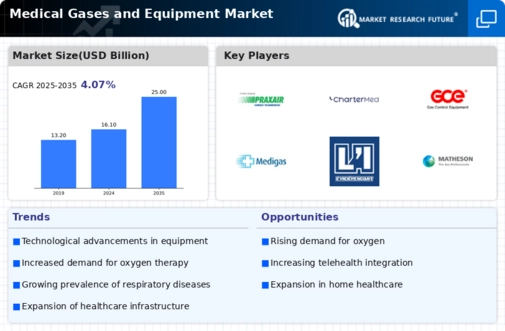
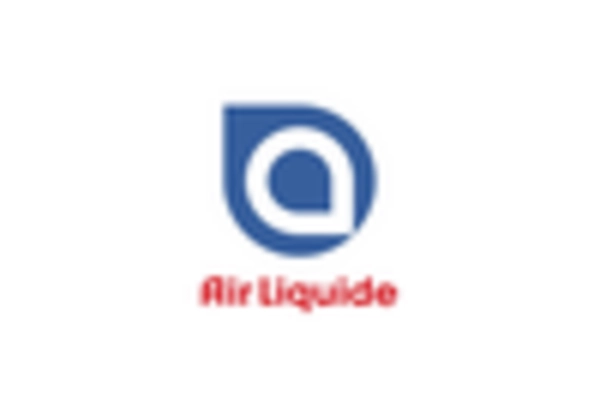
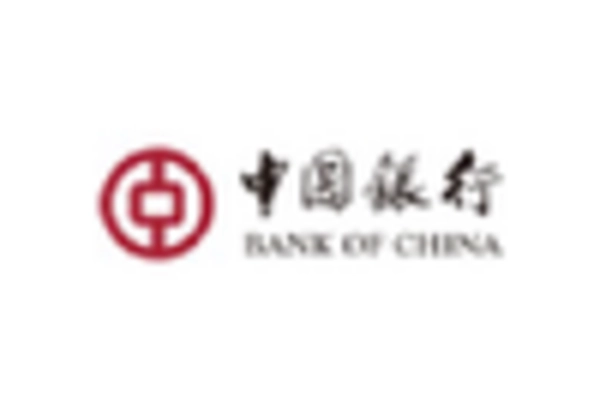
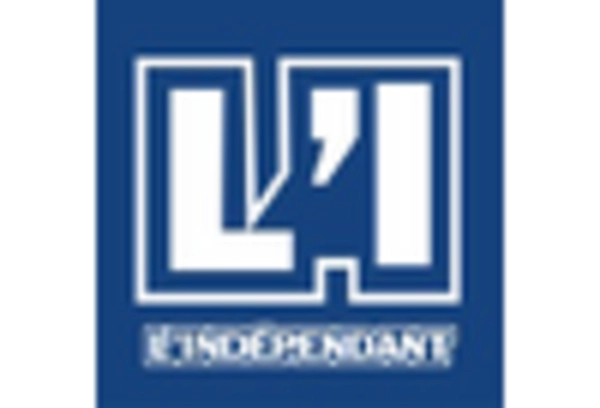
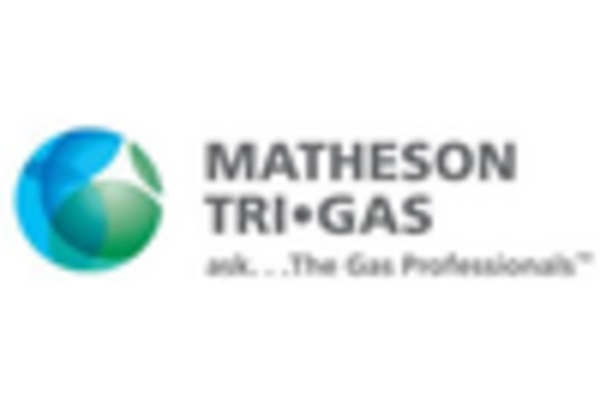
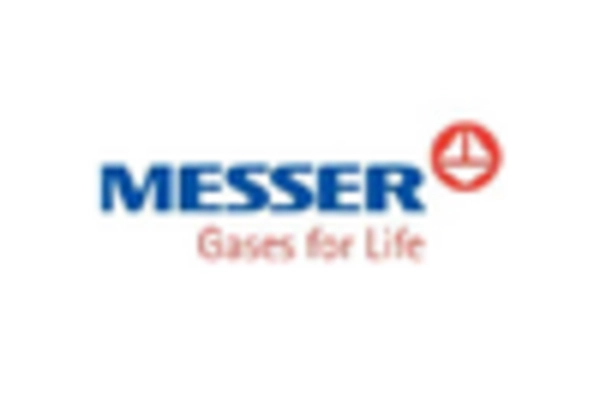
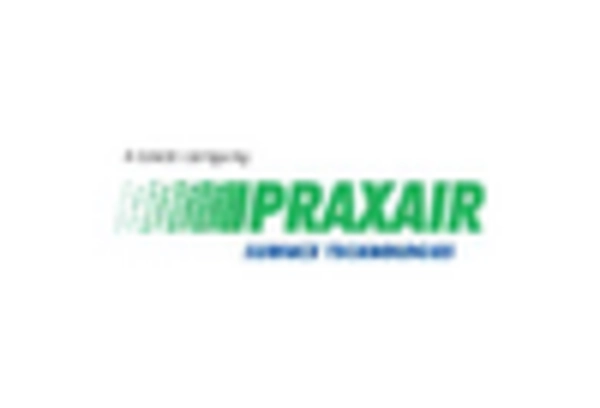









Leave a Comment